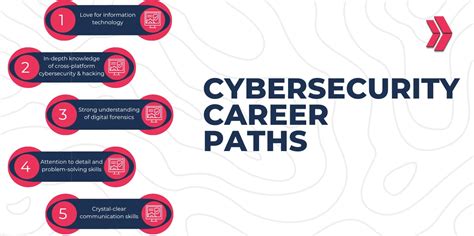In an era where technology permeates every aspect of our lives, protecting digital information and infrastructure from malicious actors becomes paramount. Cyber security has emerged as a critical field, with the demand for qualified professionals skyrocketing.

Pursuing a terminal degree in cyber security empowers individuals with the expertise and credentials to address the complex challenges and evolving threats in the digital realm. Here’s a comprehensive guide to help you navigate this path to a rewarding career:
Why Pursue a Terminal Degree in Cyber Security?
- High Demand: The Bureau of Labor Statistics projects a 33% growth in cyber security jobs between 2020 and 2030, much faster than the average for all occupations.
- Lucrative Career: According to Glassdoor, the average salary for cyber security engineers with a master’s degree is $114,810, while those with a doctoral degree can earn up to $144,223.
- Job Security: As cyber threats continue to grow, the need for skilled cyber security professionals will remain high.
- Diverse Career Options: Graduates with a terminal degree in cyber security can explore roles such as cyber security analysts, ethical hackers, penetration testers, and chief information security officers (CISOs).
Types of Terminal Degrees in Cyber Security
- Doctor of Philosophy (PhD) in Cyber Security: A research-focused degree that prepares individuals for careers in academia, research, and leadership positions.
- Doctor of Engineering (DE) in Cyber Security: A practice-oriented degree that emphasizes the application of cyber security knowledge to solve real-world problems.
- Doctor of Information Technology (DIT) in Cyber Security: A multidisciplinary degree that combines cyber security with other areas of information technology, such as information assurance, data analytics, and cloud computing.
How to Choose a Program
- Reputation: Research the reputation of the university and the cyber security program. Look for institutions with strong research capabilities, experienced faculty, and industry partnerships.
- Curriculum: Ensure the program covers core cyber security topics, such as cryptography, malware analysis, network security, and ethical hacking. Consider specializations that align with your career goals.
- Accreditation: Verify that the program is accredited by recognized organizations like the National Security Agency (NSA) or the Accreditation Board for Engineering and Technology (ABET).
- Internship and Research Opportunities: Prioritize programs that offer internship and research opportunities to gain practical experience and build professional connections.
- Financial Considerations: Explore funding options such as scholarships, assistantships, and grants to offset the cost of pursuing a terminal degree.
The Cyber Security Career Ladder
- Entry-Level: Cyber security analyst, security engineer
- Mid-Level: Security manager, incident responder, penetration tester
- Senior-Level: Chief information security officer (CISO), cybersecurity director
- Executive-Level: Chief technology officer (CTO), vice president of security
Tips and Tricks for Success
- Develop a Strong Foundation: Build a solid base in mathematics, computer science, and programming before pursuing a terminal degree.
- Network with Professionals: Attend industry events, join professional organizations, and connect with cyber security experts on LinkedIn.
- Stay Up-to-Date: Continuously learn about the latest cyber security trends, technologies, and threats.
- Embrace Interdisciplinary Collaboration: Collaborate with professionals from other fields, such as law enforcement, intelligence, and risk management, to gain a comprehensive understanding of cyber security challenges.
- Seek Mentorship: Find a mentor who can provide guidance, support, and advice throughout your career journey.
FAQs
-
What are the career prospects for PhD graduates in cyber security?
Graduates with a PhD in cyber security can pursue careers in academia, research, government, and private industry. They often hold leadership positions in cyber security organizations. -
What is the difference between a PhD and a DE in cyber security?
A PhD emphasizes research and theoretical knowledge, while a DE focuses on the practical application of cyber security principles. -
How long does it take to earn a terminal degree in cyber security?
The duration of a terminal degree in cyber security varies depending on the program and the student’s progress. Typically, a PhD takes 5-7 years to complete, while a DE or DIT can take 3-4 years. -
What are the job responsibilities of a CISO?
CISOs are responsible for overseeing the overall cyber security posture of an organization, including developing and implementing security policies, managing incident response, and advising the executive team on cyber security risks. -
What are some emerging trends in cyber security?
Emerging trends include cloud security, artificial intelligence (AI) in cyber security, blockchain technology, and quantum computing.
Conclusion
A terminal degree in cyber security is a transformative step towards a fulfilling and well-compensated career in protecting the digital world. By following the guidance outlined in this article, you can navigate the path to success and become a cyber security expert equipped to meet the ever-evolving challenges of the digital age.
Tables
| Type of Degree | Duration | Focus | Career Prospects |
|---|---|---|---|
| PhD | 5-7 years | Research and theoretical knowledge | Academia, research, government, industry leadership |
| DE | 3-4 years | Practical application | Cyber security management, incident response, penetration testing |
| DIT | 3-4 years | Multidisciplinary | Information assurance, data analytics, cloud security |
| Master’s Degree | 1-2 years | Advanced knowledge and skills | Cyber security analyst, security engineer, incident responder |
